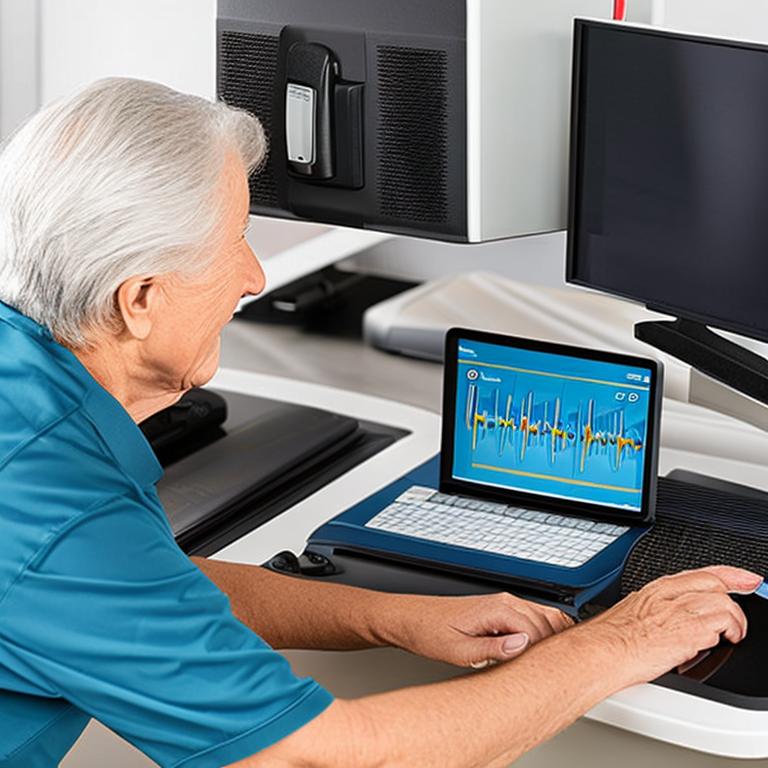Calculating Heart Health for the Elderly
Calculating heart health for the elderly involves a comprehensive assessment of various factors that contribute to cardiovascular well-being in older individuals. As aging is often accompanied by changes in the cardiovascular system and an increased risk of heart-related conditions, it is essential to utilize effective methods for evaluating and monitoring heart health in the elderly population. One of the key aspects of calculating heart health is the use of scientific measurements and calculations to provide accurate and reliable information about the functioning of the heart and overall cardiovascular system. One of the primary metrics used in calculating heart health is the resting heart rate, which is the number of heartbeats per minute when the body is at rest. In the elderly, changes in resting heart rate can indicate underlying cardiovascular issues, such as reduced cardiac efficiency or the presence of arrhythmias. By measuring and tracking the resting heart rate over time, healthcare providers can assess the heart's ability to pump blood effectively and identify any abnormalities that may require further evaluation or intervention. Another important factor in calculating heart health for the elderly is the assessment of blood pressure. High blood pressure, also known as hypertension, is a common risk factor for heart disease and stroke, especially in older individuals. Monitoring blood pressure levels regularly and ensuring they are within the recommended range can help reduce the risk of cardiovascular complications and improve overall heart health in the elderly population. Calculating heart health also involves evaluating other key indicators, such as cholesterol levels, blood sugar levels, and body mass index, to assess the overall risk of heart disease and tailor interventions accordingly. In addition to traditional measurements, advancements in technology have enabled the use of innovative tools for calculating heart health in the elderly. Wearable devices, such as smartwatches and fitness trackers, can provide real-time data on heart rate, activity levels, and sleep patterns, allowing for continuous monitoring of cardiovascular parameters. These technological advancements offer new opportunities for personalized and proactive management of heart health, empowering elderly individuals to take control of their cardiovascular well-being and make informed decisions about their health. Overall, calculating heart health for the elderly requires a multidimensional approach that incorporates scientific measurements, traditional assessments, and technological innovations to provide a comprehensive evaluation of cardiovascular well-being. By utilizing a combination of methods to assess heart health in older individuals, healthcare providers can tailor interventions, monitor progress, and promote optimal heart health outcomes in the elderly population.
The Role of Scientific Measurement in Assessing Health
Scientific measurement plays a crucial role in assessing health, particularly when it comes to evaluating various aspects of an individual's well-being, including physical and cardiovascular health. In the context of assessing health in the elderly population, scientific measurement provides objective and quantifiable data that can help healthcare providers make informed decisions about diagnosis, treatment, and overall care management. By utilizing precise and reliable measurement techniques, healthcare professionals can gain valuable insights into the health status of elderly individuals and tailor interventions to promote optimal health outcomes. When it comes to assessing cardiovascular health, scientific measurement techniques such as electrocardiography (ECG) and echocardiography are commonly used to evaluate the structure and function of the heart. These non-invasive tests provide detailed information about the heart's electrical activity, blood flow, and overall performance, allowing healthcare providers to identify abnormalities, assess cardiac function, and diagnose heart conditions in the elderly. By analyzing the data obtained from these scientific measurements, healthcare professionals can develop personalized treatment plans and monitor the effectiveness of interventions aimed at improving heart health. In addition to cardiovascular health, scientific measurement is also instrumental in assessing other aspects of health that are crucial for overall well-being in the elderly population. Measurements of vital signs such as blood pressure, temperature, and respiratory rate provide valuable information about the body's physiological functions and can help detect signs of illness or underlying health conditions. Laboratory tests, including blood tests and urine analysis, offer insights into metabolic function, organ health, and nutritional status, enabling healthcare providers to identify deficiencies, monitor disease progression, and optimize treatment strategies for elderly individuals. Furthermore, scientific measurement techniques are essential for monitoring the impact of lifestyle interventions, medications, and therapeutic interventions on health outcomes in the elderly. By regularly measuring key health parameters and tracking changes over time, healthcare providers can assess the effectiveness of interventions, adjust treatment plans as needed, and empower elderly individuals to take an active role in managing their health. Scientific measurement not only provides valuable data for assessing health but also serves as a tool for promoting preventive care, early detection of health issues, and personalized health management strategies tailored to the unique needs of elderly individuals. In conclusion, the role of scientific measurement in assessing health in the elderly is indispensable for providing accurate, objective, and evidence-based information that guides clinical decision-making and promotes optimal health outcomes. By leveraging scientific measurement techniques to assess cardiovascular health, vital signs, laboratory parameters, and treatment effectiveness, healthcare providers can enhance the quality of care, improve health outcomes, and support the well-being of elderly individuals as they age.
